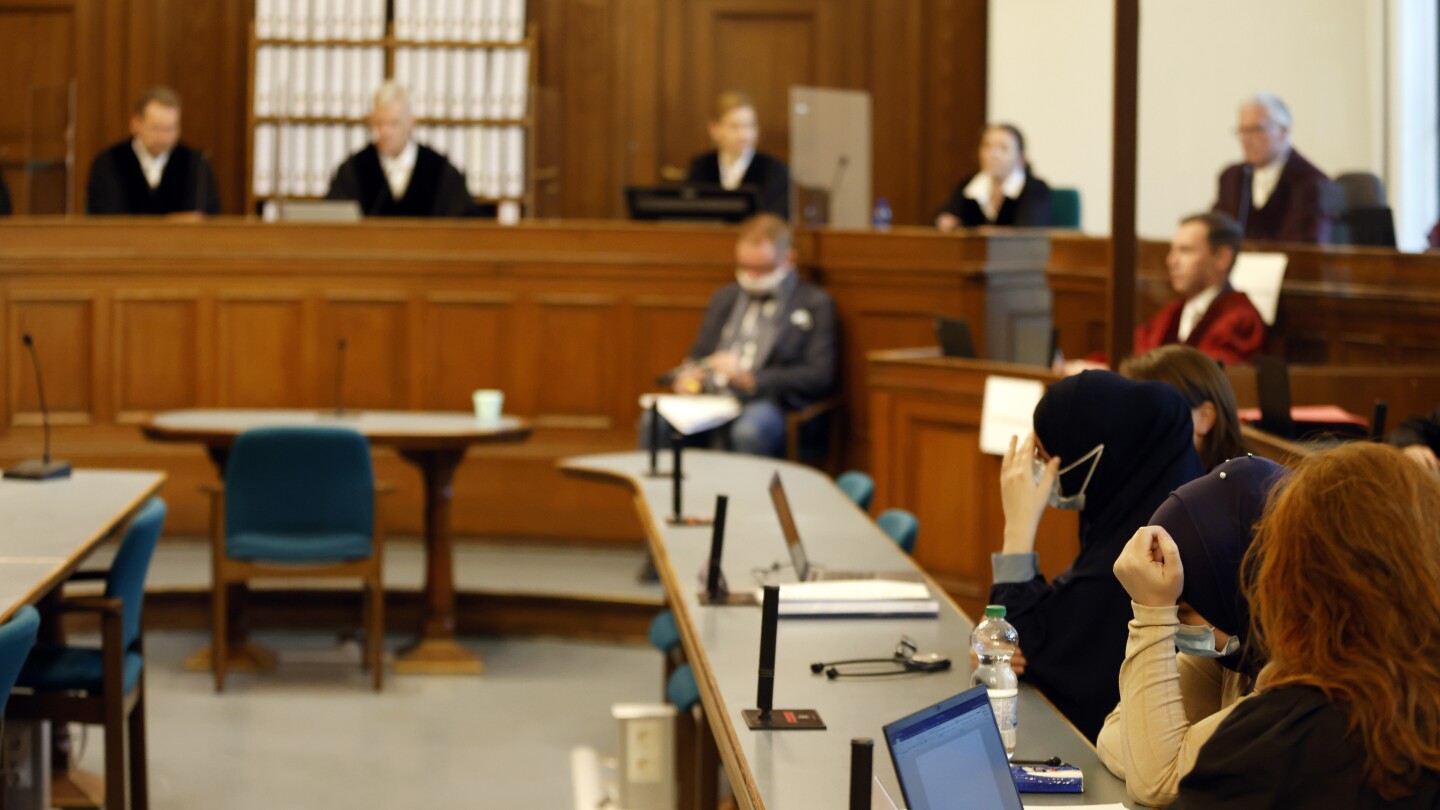Vadim Krasikov’s name has come up several times in recent weeks in relation to prisoner exchanges between Russia and Western countries. Here’s what to know.
Which prisoners’ names have come up?
Associates of Russian opposition leader Alexei Navalny said Monday that talks were underway shortly before his death to exchange him for a Russian imprisoned in Germany. That Russian prisoner was Krasikov.
According to Maria Pevchikh, one of Navalny’s closest associates, he and two U.S. citizens held in Russia were to be swapped for Krasikov. Her claims could not be independently confirmed and she did not offer any evidence to back them up.
Earlier this month, Russian President Vladimir Putin, in an interview with former Fox News host Tucker Carlson, implied that Wall Street Journal reporter Evan Gershkovich, detained in Russia on espionage charges, could be swapped for Krasikov.
Although Putin did not identify him by name, it is widely understood that the Russian “patriot” he said was serving a life sentence for “liquidating a bandit” in “one of the European capitals” was Krasikov.
What was Krasikov convicted of, and how was Russia involved?
He was serving a life sentence in Germany for the 2019 killing in Berlin of Zelimkhan “Tornike” Khangoshvili, a 40-year-old Georgian citizen of Chechen descent who had fought Russian troops in Chechnya and later claimed asylum in Germany.
Krasikov was sentenced in 2021. German judges said he acted on the orders of Russian authorities, who gave him a false identity, passport and the resources to carry out the killing. The killing and subsequent sentencing triggered a major diplomatic row between Russia and Germany, including tit-for-tat diplomatic expulsions.
Evidence reviewed by the court, including material unearthed by the investigative news site Bellingcat, showed that Krasikov had been employed by a Russian security agency and was likely asked to carry out the hit in 2019, presiding judge Olaf Arnoldi said.
Krasikov and his legal representatives have contested his guilt for the killing and have even disputed his identity. Krasikov said at the start of his trial that he had been misidentified and was born in Russia in 1970, not in Kazakhstan in 1965.
How did Krasikov carry out the killing?
A month before the killing, Arnoldi said, Russian authorities issued Krasikov a fake passport under the alias Vadim Sokolov that he used to travel to Berlin, where he shot the victim repeatedly from behind with a silencer-fitted handgun near Berlin’s Kleiner Tiergarten park.
Witnesses saw the suspect throw a bike, a gun and a long, dark wig into the River Spree nearby and alerted police, who quickly arrested him before he could make off on an electric scooter.
Kremlin spokesman Dmitry Peskov called the allegations of Russian involvement in the Berlin killing “absolutely groundless.”
What else do we know about Krasikov?
According to Bellingcat, Krasikov was born in 1965 in what is now Kazakhstan, then part of the Soviet Union. Bellingcat says he worked for the FSB, Russia’s state security service. The Associated Press was unable to confirm these claims.
Krasikov — a twice-married father of three — had no previous convictions, Arnoldi said, but official records showed he had been sought by Russian authorities over the killing of a businessman in Moscow in 2013. The case was dropped in 2015.

